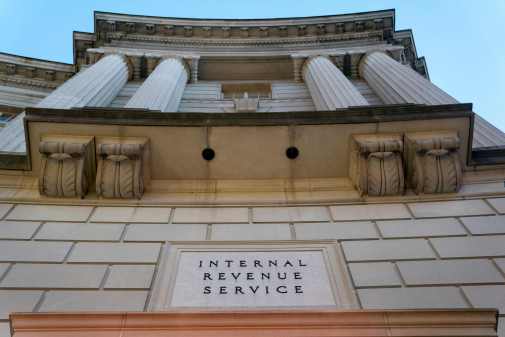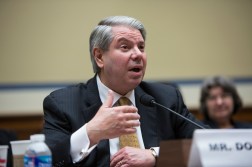Federal workforce champion steps down
One of the federal workforce’s most passionate and consistent champions, Colleen Kelley, is stepping down from her bully pulpit Thursday.
For the past 16 years, Kelley has used her position as president of the National Treasury Employees Union to defend not only the rights of the union’s workers, which now numbers 150,000 at 31 departments and agencies, but also the reputation of civil servants at large.
Tony Reardon, the union’s national executive vice president and former chief operating executive, was elected Tuesday to succeed Kelley, who is retiring Aug. 13.

National Treasury Employees Union veteran Tony Reardon takes over as the union’s president Thursday. (NTEU)
The past several years have been particularly difficult for federal workers, who’ve endured a three-year pay freeze, pension cuts, furloughs, the indignation of the public and indifference from Congress.
Kelley has also had to battle with Congress and agency heads over workers’ rights. Among other victories, Kelley stymied efforts to have the IRS privatize the collection of unpaid tax debts; won enhanced retirement benefits for law enforcement officers at Customs and Border Protection; tackled abuses in federal contracting; and helped restore labor-management collaboration at federal agencies.
Kelley never intended to become a union leader. Trained as a certified public accountant, Kelley joined the IRS as a revenue agent in Pittsburgh, where she worked for 14 years while earning a master’s degree in business administration. But the injustices she said she observed at work led her to get involved with the NTEU, beginning as a union steward 35 years ago. That led to a move to the union’s Washington office in 1988 and her election as union president in 1999.
“I have learned some absolute truths,” she said in prepared farewell remarks on Monday at the NTEU’s biennial convention in Hollywood, Florida. “These are things I know beyond a shadow of a doubt.”
Among them: “Given the tools and resources, no one does the work of the federal government better than federal employees. No one,” she said.
“When George W. Bush took office, he made a big push to privatize federal jobs. At one point, the administration planned to contract out as many as 850,000 federal jobs,” she recalled. While Kelley and the union pounced on the potential loss of jobs, she also voiced concern over private sector practices on behalf of the federal government, and what many saw as a false economy in outsourcing, which frequently ended up costing the government more than it saved.
“We cannot put American taxpayers at risk of aggressive collection tactics and exposure of private tax information,” she said, referring to efforts to turn IRS debt collection to the private sector. “Plus, it is a bad fiscal deal for the government.”
“That leads me to another truth: Most of our fights are not just about those we represent. They are about what is best for the country and for the American people.”
Even in her final public appearance, Kelley railed against Capitol Hill’s debilitating IRS budget cuts that have handcuffed the agency’s ability to help taxpayers and deter fraud; and she reiterated the union’s resolve to secure lifetime protection for all affected federal workers and their family members whose identity information was compromised in the recent Office of Personnel Management data breach.
“Over the years, I have learned that one of the reasons our path is often difficult is that federal employees work under the radar. The country depends on you to do your jobs without a lot of fanfare,” she told union members in her farewell speech. “They just expect the work to get done. It is only when something negative makes headlines that attention is paid. That is why we must tell your story and why we must fight.”
That fight now falls to Reardon, who led the union’s day-to-day operations for the past 13 years, and to Jim Bailey, who was elected to take Reardon’s place as the union’s executive vice president. Reardon, who joined NTEU 25 years ago, has earned a reputation as a skilled negotiator and a strategic planner, securing what some observers have called some of the best employee contracts in the federal government.




